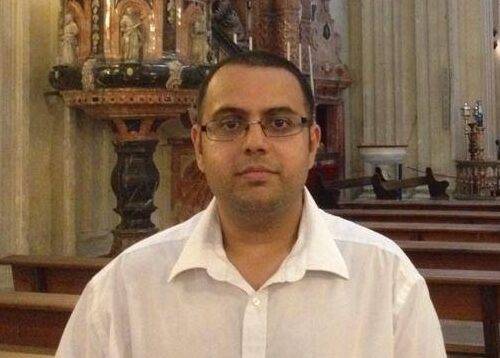Over the summer of 2019, observers of events in Syria were left bemused by the news that Rami Makhlouf had been placed under house arrest. It simply didn’t make any sense. Makhlouf is President Bashar Al-Assad’s cousin, a member of his regime’s inner sanctum who has been instrumental in keeping Assad in power.
In 2011, the Financial Times estimated that Makhlouf controlled 60 per cent of Syria’s economy; after the Syrian revolution broke out, he was accused by the European Union of bankrolling the violent crackdown on peaceful demonstrators.
Using his extensive business contacts, Makhlouf enabled Assad’s survival and helped pay for his war. Although he was on the US and EU’s sanction list, he received millions of dollars from the UN through aid programmes designed as humanitarian relief for Syrian civilians suffering the ravages of war. UN money became an important lifeline for the regime and Makhlouf was the go-to-guy for it.
Such prominence makes his fall from grace puzzling. Not only was he suddenly placed under house arrest but stories also came out of Damascus about his business interests being sold off, including SyriaTel, one of the country’s largest telecommunication networks, without explanation. This left many deeply confused.
READ: Assad regime persecutes Syrian Christians, says human rights group
It then emerged that the seizure of Makhlouf’s assets did not happen due to a rift with Assad, but at the request of Russia. Moscow demanded that Damascus should repay a $3 billion loan, money which the Syrian regime did not have; pleas by Syrian officials to delay the repayment were rebuffed by the Kremlin. Russian officials told their Syrian counterparts to take Makhlouf’s money and provided documents showing that he had the funds. The incident highlighted a growing tension within Assad’s Syria, but is ultimately a minor symptom of the inherent instability of the brutal regime. It is a place where the ruling class has to eat its own when ordered to by a foreign power and this refutes any notion that an Assad victory will return independence and sovereignty to Syria.
Clashes within the regime are not new but rarely take place at such a high level. In the past 12 months I have seen a growing number of reports of clashes between pro-regime forces (including Syrian army units), pro-regime militias and tribes. While information is sketchy, it appears that a power struggle has actually broken out between Iran and Russia.
![Injured air attack victims are being evacuated following air attacks of Bashar al-Assad regime and its supporters on Idlib de-escalation zone's Maar Shurin district, Syria on 10 June 2019. [İzeddin İdlilbi - Anadolu Agency]](https://i0.wp.com/www.middleeastmonitor.com/wp-content/uploads/2019/06/20190610_2_36812340_45171565-e1560161509105.jpg?resize=920%2C613&ssl=1)
Injured victims are being evacuated following air attacks carried out by Bashar Al-Assad in Idlib, Syria on 10 June 2019 [İzeddin İdlilbi/Anadolu Agency]
Assad: ‘We lost 100,000 soldiers and there is no torture in our prisons’
This battle extends to the Syrian population itself. Iran’s attempts to change Syria’s sectarian demography is well documented. In Damascus, especially near Shia shrines and strategically important locations near the Lebanese border, Iran has encouraged Syria’s tiny Shia community as well as families bussed in from Lebanon and Iraq to buy property and take over areas where the local Sunni population has been forced out. Furthermore, Iran has also been accused of trying to convert the Sunni population in north-east Syria to Shi’ism through educational and financial initiatives.
Iran is hardly alone with this religious dimension, though, as Russia’s Orthodox Church declared Moscow’s intervention in Syria to be a “crusade” to protect Syrian Christians, since when it has been leading efforts to integrate local churches with Russia’s. Both sides are trying to shore up their presence in Syria and that includes waging demographic war. The Assad regime itself has engaged in the same practice; indeed, demographic warfare and enforced expulsion of the civilian population is not a by-product of war between Syrian regime forces and the opposition, it is the war itself.
Populations in opposition held areas who surrender to the regime have been promised “reconciliation” with the Assad regime by the Syrian authorities, although, as many reports have demonstrated, the Syrian regime constantly breaks these agreements and arrests them. The prevailing attitude among political elites is rooted in prejudice and dogmatism, and insists that anything that resembles a state is good for stability. Assad, no matter how tarnished he is, is a necessary evil and is needed to put Syria back together.
Trying to rehabilitate the Assad regime, therefore, is not only morally wrong, but also politically nonsensical. While the Assad state looks like a “normal” nation state, it is nothing more than a skeleton structure that requires foreign intervention to sustain itself. None of the grievances leading to the 2011 revolution have been addressed; in fact, they have worsened. Assad himself is incapable of keeping the peace. The question of long term stability in Syria can only be broached once Assad has stepped down. If the world is serious about stability in Syria, this needs to happen sooner rather than later.
READ: Syrian woman recalls regime jail torture, rape threats
The views expressed in this article belong to the author and do not necessarily reflect the editorial policy of Middle East Monitor.

![Damaged buildings in a residential area after the Assad Regime carried out air strikes in Idlib, Syria on 28 August 2019 [Muhammed Said/Anadolu Agency]](https://i0.wp.com/www.middleeastmonitor.com/wp-content/uploads/2019/09/Airstrikes-continue-to-hit-Syria20190826_2_37912765_47065909.jpg?fit=920%2C613&ssl=1)







